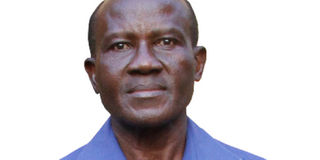More than ever, NRM needs slow thinkers

What you need to know:
But even in our cities, there are educated defenders of this cynicism; lackeys who are too slow to visualise Uganda returning to its defining shame. A desperate NRM now needs these slow thinkers even more than it needed the peasants 20 years ago
President Museveni’s first beloved victims were peasants. After he had defeated most of the post-1986 rebellions, with only Joseph Kony’s decimated bands of nomadic desperados and the never-growing ADF based in the DR Congo occasionally disturbing Uganda, Museveni shifted his focus to the increasing pressure from the unarmed Opposition.
To consolidate his power, Museveni disparaged the wealthier and more educated class mainly in urban centres, and he regarded with great fondness the people in the countryside. He called the latter ‘his’ peasants.
I suppose many peasants were elated by the big man’s association with their class. The improved security that assured them of a good night’s sleep became a song.
The prosperity they had been promised many times but that still eluded them could be blamed on an incompetent and corrupt Naads, or to Opposition politicians who were anti-development and sabotaged government programmes; or to middlemen who exploited the peasants by setting low prices for their produce.
Because Museveni had fought most of his war to gain power in the countryside, where peasants fed, shielded and sometimes joined his guerrillas, he might have had some special attachment, or felt special gratitude, in his attitude towards peasants as a class.
But a cynical interpretation may be more truthful. Very likely, he patronised them because he believed they were slow thinkers, while at the same time their demographic translated into millions of votes. Their relative ignorance was therefore his asset.
This is not to insult them; but our peasants have demonstrated that they can patiently wait for a tarmac road that was promised 15 years ago.
When the President finally appears to open the finished road, the peasants swarm to gape at the size of his convoy and marvel at the mobile First Toilet.
Before Covid-19 hid Mzee’s face in a mask and put him at the correct distance from ordinary mortals, peasants would scramble for the miracle of shaking his hand.
Very often, the peasant cannot internalise the astronomical differences between 10 and 11-digit figures of cash. And a thickness of one inch of tarmac shines just like two or three inches of tarmac.
Explaining to them that they could have got two roads of the same quality instead of one was futile. It verged on ingratitude by Kampala people who did not like Museveni.
Now, most of the peasants aged over 45 in 1986 have passed on. Many of the younger ones have migrated to urban centres to do small things for a livelihood. Their ‘modern’ poverty is different from peasant poverty because of exposure to town life. They share their stories with their kinsfolk in the villages, and their disillusionment has the same bitterness.
Museveni now has to journey to the remote parts of the north that were decimated by Kony’s war, or to Karamoja and Lake Victoria islands to find peasants who worship him.
This does not mean that slow thinkers are extinct in the rest of Uganda.
Given the history of power struggles in our country, it does not require great intellect, or exceptionally high moral intelligence to judge that it was repugnant for Museveni’s NRM to engineer (not once, but several times) a situation in which a corrupt 35-year regime cannot leave office in peace with some dignity.
But even in our cities, there are educated defenders of this cynicism; lackeys who are too slow to visualise Uganda returning to its defining shame. A desperate NRM now needs these slow thinkers even more than it needed the peasants 20 years ago.
Mr Tacca is a novelist, socio-political commentator.
[email protected]




